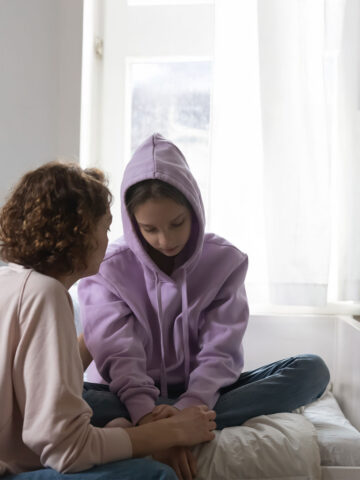It can feel overwhelming for parents and caregivers to manage their child’s ADHD. The following is a list of go-to strategies and tips that can help you and your child cope with the challenges of ADHD.
Catch your child being good
Notice the things you like about your child’s behavior and express your appreciation of the good behavior.
Reward your child’s good behavior and ignore negative behavior
If your child is behaving well, give them praise. If they’re misbehaving, so long as it isn’t dangerous or destructive, ignore it.
Use clear commands
Be clear and specific and tell your child what to do. For example, try “turn off the video games now” or “walk please” instead of saying, “Don’t run.” Use one command at a time as multiple steps can be difficult for the child to follow.
Use consequences and rewards
Make sure consequences and rewards are used immediately. Rewards should be used after positive behaviors to increase the likelihood that they will happen more. For example, a reward may be allowing your child to choose a dessert after finishing dinner. On the other hand, consequences should be used after challenging behaviors to help decrease their frequency and help your child learn what is not appropriate. A consequence may be removing your attention (as described above) or removing video games if a child refuses to do chores. It is important that the rewards and consequences are things your child cares about, are fair for the behavior, and are things that you can follow through with each time.
Identify and label emotions
Children are born with the ability to express emotions but not the ability to know how to appropriately label them. Teach your child about emotion and ways to express emotion by commenting on your child’s, yours, and others’ emotions. For example, you might say, “I am very sad today” or “You are mad. It’s okay to be mad, and it is not OK to hit others.”
Develop routines
Help your child develop strategies to organize themselves. These might include a written daily schedule, a homework notebook, etc.
Give frequent breaks
When your child is doing a difficult task, such as homework, give frequent 5-minute breaks to help with concentration.
Find treatment for your child
ADHD can impact children and teens for their entire lifetime, so the best way that parents can help their kids is to know the signs and symptoms of ADHD to get their child assessed earlier rather than later. If your child is diagnosed with ADHD, seeking treatment options can help reduce the impact of the disorder.
Behavioral therapy, medication or a combination of the two may be effective ways to treat ADHD. If a child or teen has mild to moderate symptoms of ADHD, behavioral therapy may be a sufficient treatment entirely.
For kids and teens with more severe ADHD symptoms, medication is very effective – it makes an ADHD brain function like a neurotypical brain.

Featured article
Crisis Resources
If your child expresses thoughts of wanting to harm themselves or others,
call 9-1-1 or visit the nearest emergency department.
To reach the Crisis Text Line, text HOME to 741-741 or visit crisistextline.org.
To reach the National Suicide Prevention Lifeline, call 9-8-8 or visit 988lifeline.org.
Learn more about CHOC’s pediatric mental health services
At CHOC, we specialize in providing a full spectrum of pediatric mental healthcare, including inpatient, intensive outpatient and outpatient program services.
Get 24/7 advice from CHOC
External resources
National Institute of Mental Health
ADHD Statistics & Information
ADHD in Children and Teens: What You Need to Know
Children and Adults with Attention-Deficit/Hyperactivity Disorder (CHADD)
chadd.org
American Academy of Child & Adolescent Psychiatry – ADHD Resource Center
www.aacap.org




